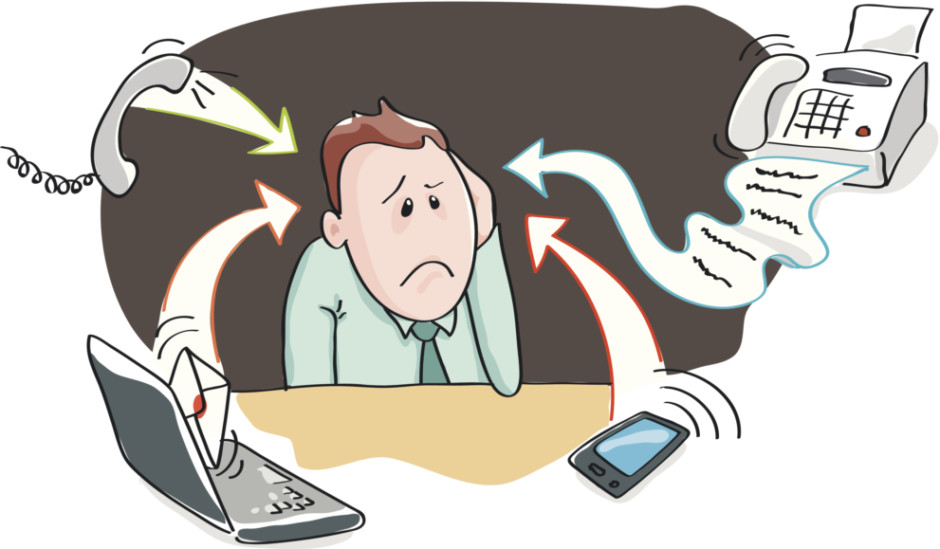What do you do on work hours? For many people, work is not the only answer.
Socialising with coworkers, personal calls, personal use of social media and many other distractions may be taking a big chunk of their work day.
Such constant distractions reduces productivity and put their jobs at risk.
At a certain point, it may be unclear why the day flies by and not much gets done. For supervisors, however, the distractions are clearly part of the cause.
In addition, the time waste around these activities adds up quickly making it difficult for people to get a good stretch of uninterrupted time to focus on tasks.
Does that mean that disconnecting completely from personal devices and accounts is the solution? It could be, if that is an option.
Many people still need to keep an eye on their phones and email accounts for family emergencies or planning. Employers do understand this need, but they also expect employees to have discipline and avoid wasting time and resources for personal matters.
Establishing some personal rules on how to maintain this discipline can help get the job done efficiently. Here are a few points to keep in mind.
Let your friends and family know
You can adjust others’ expectations in terms of your availability during office hours. For example, if friends expect that you will only get in touch to plan an after-work meeting, the texting, emailing and calling will be limited to that sort of planning. If they expect you to be available the next day to continue the conversation about what was discussed over dinner, you may get a lot more communication.
The point is: If you’re consciously trying to limit your use of work hours for personal matters, make a note of this to friends and family members. If you don’t want to be direct – which is the best route – stop responding to non-urgent matters until after office hours. And note you were at work and that is why you didn’t respond earlier.
Turn off the notifications
It may be hard to resist the temptation to see what the last Facebook notification is about. If you have got a new email, your curiosity to open it will take away your focus as well. How about if you just avoid these temptations by turning off the notifications.
You can assign certain points of the day to check all of the new emails, posts, etc. It can be part of the lunch hour routine, tea breaks, etc. That is when you choose consciously to tune in and catch up with your personal matters.
In fact, many professionals who don’t handle urgent matters in their daily routine do the same even with work emails and messages. They simply avoid interrupting their work flow constantly by opening every single email, message or call.
Again, they assign particular hours for doing so, and stick to them. If you choose to do this, it is likely that people around you, including coworkers, will appreciate the focus, and they will let you know in case there is something urgent in some other way.
Take time off
Instead of handling personal matters constantly during work hours, take some time off. If you feel the need to connect with friends or family, handle personal errands, pay utilities or do the banking online, take half a day off and get these matters done.
Even if these matters don’t seem to take more than a few minutes, giving them your full attention may be worthwhile in avoiding errors while at work. In addition, you won’t be worried about a supervisor looking over your shoulder and interrupting the personal stuff.
For stuff like social media and the like, make sure you and your coworkers get dedicated time for this type of communication. A weekly get-together may be a good idea and something to look forward to. Think quality rather than quantity.
Constant communication isn’t a sign of having a strong bond, it is just a habit that can sabotage your productivity and others’ ability to focus on their jobs and lives.
— The writer, a former Gulf News Business Features Editor, is a Seattle-based editor.
Stay focused
- Be aware of time spent on personal matters.
- Have your own rules and stick to them.
- Avoid excessive use and constant interruptions.
- Dedicate time for personal communication.
R.O.





